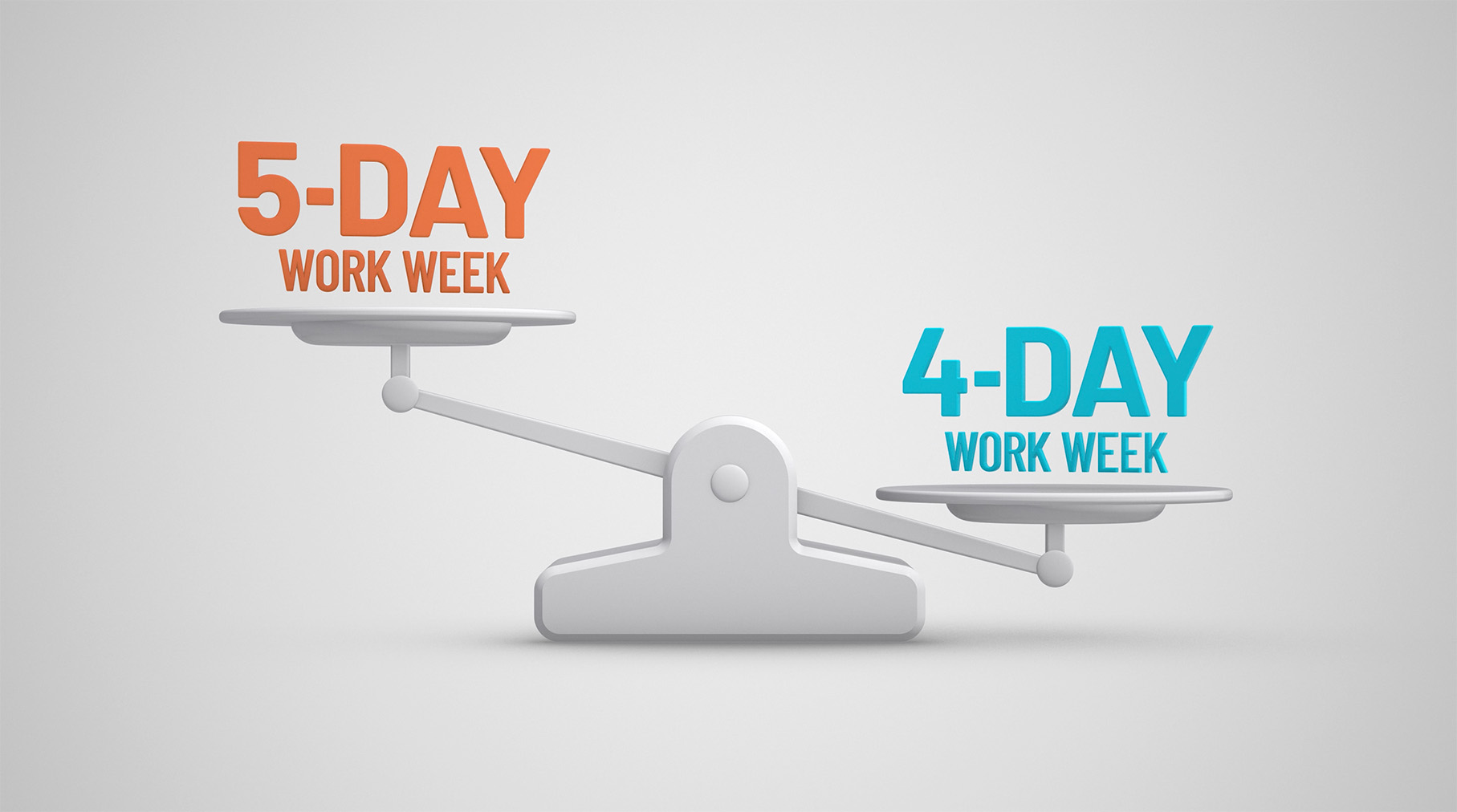
The four-day work week is a powerful way to break free from the shackles of the 9-to-5 and redefine success in a modern, flexible world.
Thursday is the new Friday
The pandemic caused many companies to rethink their work arrangements and consider alternatives to the 9-to-5, five-day work week. After seeing the pandemic’s physical, mental, and emotional toll on employees, many employers felt a more outstanding moral obligation to protect their staff’s mental being. Witho.ut compromising business culture, limitless remote work was not on the table anymore. Reducing working hours is the perfect opportunity to maintain business culture and give more valuable time for workers to spend on themselves
While 9-5 and what happens on the job is important, what happens from 5-9, off the job, is infinitely more important.
Zig Ziglar
A 4-day work week is a pilot strategy that prioritizes the workforce and boosts productivity and employee satisfaction. It is a 100-80-100 system in which employees receive their total wages for working 80 percent of their regular hours without any loss in performance.
Four-day work week studies are gaining popularity and participation worldwide. Participating companies used various methods to implement the 32-hour timetable. Some took a three-day weekend off, while others decreased staff over the week. Some enjoyed a midweek off day, while others worked the same number of days but shorter hours.
One restaurant calculated a 32-hour week over an entire year, with longer opening hours in the summer and shorter in the winter. Some companies conditioned the decreased hours with fewer holiday days, the threat of being called in at short notice, or a “conditional” four-day week that only lasted if performance criteria were fulfilled.
To maintain productivity, companies have implemented various strategies, including shorter meetings with more explicit agendas, interruption-free focus periods, email etiquette reform, production process analysis, and end-of-day task lists for efficient handovers or next-day head starts to maintain productivity with reduced working hours.
In the age of information and technology, working less can actually yield better results, as long as we work smarter.
4-day work week trials
The idea of a four-day work week is decades old. Microsoft Japan’s pioneering two-month Work-Life Choice Challenge Summer 2019 revived the idea. Employees got three-day weekends every week for two months. The company unexpectedly saw a 40% productivity boost, lower operational costs, and increased employee satisfaction. 4 Day Week Global did studies with more than two dozen countries, such as the United States, Australia, Canada, and many more. As of 2023, the February sum of 4 Day Week Global pilot participants is 91 companies from all over the world. The largest four-day work week trial was conducted in the UK in 2022 and lasted six months with over 60 companies and 2,900 employees.
Participants took two months of courses before the pilot on workload management. Work-life balance and productivity were improved, and burnout was reduced. 92% of the companies have agreed to embrace a 32-hour work week full-time.
Creating a healthy working environment and balancing work and personal life is most important. The four-day work week has emerged as a game-changer for businesses and employees in a post-pandemic world.
The successful pilot results demonstrate that companies and employees can reap significant benefits from adopting a reduced-hour, output-focused work model, leading to increased productivity, improved well-being, and higher job satisfaction.







